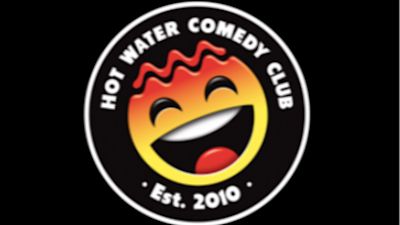Hot Water Comedy Club pulls out of crucial Covid rapid testing trial after 'confusing' government messaging

A comedy club set to trial a rapid Covid testing programme at entertainment venues has pulled out following 'confusing messaging' from the government.
The Hot Water Club in Liverpool had signed up for the event to "prove that venues and events like ours could be safely reopened and take place".
But, the club say, after the Government released a press statement around 'vaccine passports' making it unclear which trial the comedy club was in - many drew the wrong conclusions.
The club said: "For some reason, all trials had been bundled together under the same press release and it seemed that we were part of the vaccine passport programme."
It added it was then subject to a "hate campaign", which has "significantly damaged our business and brand".
The Hot Water Comedy Club signed up to be part of the 'Event Research Programme' in early March.
It was hoped evidence from the study would be used to support the case to fully reopen venues without the need for social distancing.
At the time, Culture Secretary Oliver Dowden, said: "These test events will be crucial in finding ways to get fans and audiences back in safely without social distancing.
"We will be guided by the science and medical experts, but will work flat out to make thathappen. We want to get the people back to enjoying what they love and ensure some of ourmost important growth industries get back on their feet.
"These are important steps towards the safe and special summer we all crave and that I’mfully focused on delivering."
But, following the press release the club says its reputation has been damaged and has decided to pull out of the trial.
In a statement on its Facebook page the club said: "A press release sent out by the government to all UK media... The headlines were all about ‘vaccine passports’.
"For some reason, all trials had been bundled together under the same press release and it seemed that we were part of the vaccine passport programme.
"We also happened to be the very first event of any trial in operation so, not surprisingly, the headlines mentioned ‘Hot Water Comedy Club’ and ‘The Vaccine Passport Programme’ as if we were part of the Programme.
"On Saturday evening we were made aware of articles with headlines about vaccine passports and our involvement with them.
"We then contacted Liverpool Council along with our contacts at the venue as we were very concerned about the way we had been portrayed in the media linking us to vaccine passport trials, something we had never agreed to.
"Unfortunately damage had already been done.
"Over the next 2 days we were subject to a hate campaign from people opposing the vaccine passport across our Facebook channel, Twitter, Instagram, emails, text messages, negative reviews, refund requests and phone calls.
"We have over 4,000 separate examples of negative reaction which have significantly damaged our business and brand.
"We went out on all of our social channels and had over 15 interviews with the media to correct the record about our involvement in the trial event and what we had agreed to be a part of. Unfortunately there are lots of articles still circulating wrongly stating our involvement.
"As a consequence of misleading press releases/media articles and the confusing messaging on the official government website (which was last updated on 5th April 2021) we have made the decision not to be a part of any programme at all. We have still not managed to speak to anybody in the government about this."
A Government spokesperson said: "We strongly condemn the online abuse that Hot Water Comedy Club has received.
"Our initial pilot events will be based on proof of a negative test result and there will be no requirement for participants to have received a vaccination in venues like a comedy club.
"Our ambition is to help the British public get back to the mass events they enjoy safely - such as going to sport, live music and cultural events - in a way that ensures the risk of transmission is sufficiently low while maintaining commercial viability."